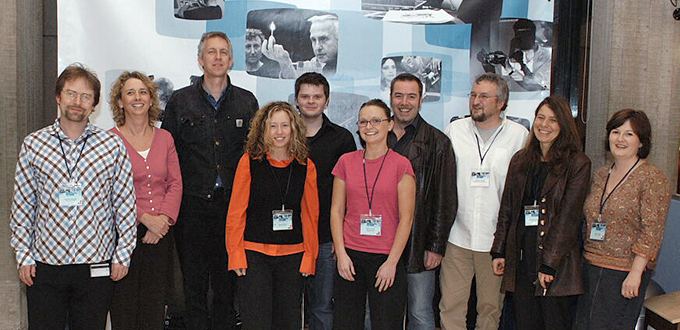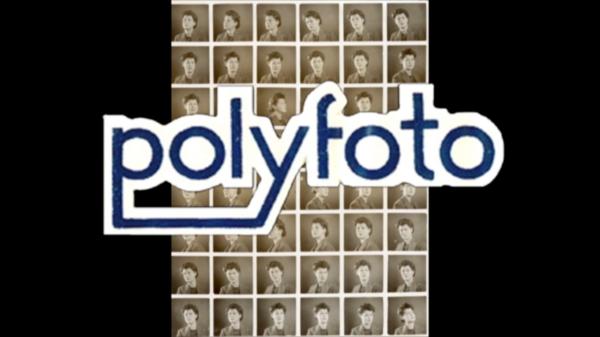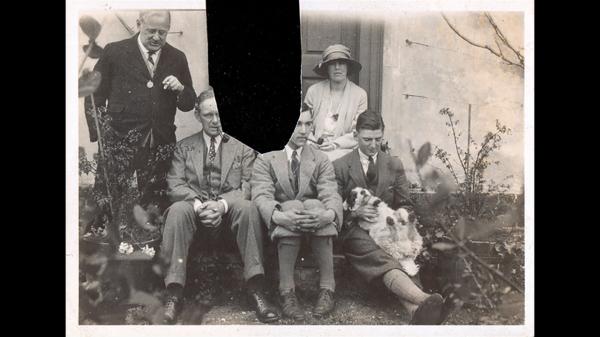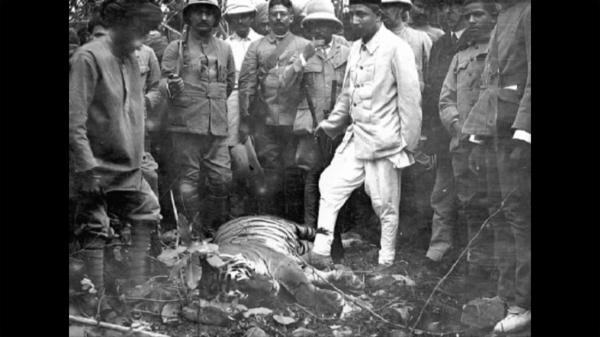Digital Stories
A digital story is a considered narrative made with feeling out of a dozen or so pictures, and a script of about 250 words performed as a first-person voice-over. It plays for around two minutes.
Here's how I came to be making digital stories... and what happened next
It was the autumn of 2000 and I was working at the Cardiff School of Journalism, Media and Cultural Studies (now the School of Journalism, Media and Culture). The world wide web was a mere decade old, access to the internet was available only on dial-up and social media was in its infancy. Nevertheless 'big media' professionals in broadcasting and print were increasingly anxious, neurotic even, about the coming digital age. How would it impact their business models? What would all this promised interactivity mean? What would happen when viewers and readers started to answer back? What would happen when all the audience demanded to be all on stage all at the same time? Fuelled by such anxieties and funded by the Welsh Development Agency, I undertook a research trip to California to study the short-form digital storytelling work being pioneered at the Center for Digital Storytelling (now Storycenter) by Dana Atchley and Joe Lambert.
I returned to the UK inspired, for this work was centred on notions of community building, something I had understood ever since my days on the Free Photographic Omnibus. I began making my own digital stories (including the three presented here) and quickly came to appreciate the enormous potential of the form as something which television audiences, traditionally cast in a passive role, might embrace as a tool for becoming active participants in the creative process. If only they could be shown how.
Adapting the idea for TV
I adapted the American model as a content production idea for public service broadcasting and, brokered by my then boss, former BBC head of news Ian Hargreaves, I pitched it to BBC Cymru Wales as a community storytelling venture. Clearly it was something that would require a considerable amount of commitment, not only from the storytellers but also from those facilitating the workshops for, as well as learning the technical stuff, they would need to learn script writing, picture editing and the performance skills necessary for delivering a voice-over. It would be expensive too. So I was not optimistic. But BBC executives, seeing this as a chance to be pioneers at the digital coalface, embraced the idea. To develop it, the university sent me on secondment as its creative director. Very soon what I had started became a full-blown project. It was given a production team, a van load of equipment and a name, Capture Wales (Cipolwg ar Gymru).
Project launch
Capture Wales was launched in Wrexham with a fanfare in May 2002 by BBC Director-General Greg Dyke who said:
"One of the things about twenty-first century Britain is that it isn't the BBC telling you any more, it must be an involvement between the BBC and the people who pay for it."
Workshops
Capture Wales was delivered through five-day workshops in community halls, each event enabling ten participants — people of all ages — to tell their story.
Across Wales photographs discovered the talkies and the stories told, often tight as sonnets, assembled on the Capture Wales website like pieces of a jigsaw puzzle. Multimedia sonnets from the people.
Many of those who took part subsequently testified how rewarding the experience had been for, when their story was shared with friends and family, posted on the web or broadcast on television, they found they had discovered a new voice.
Awards
Capture Wales won a slew of awards, including a BAFTA Cymru (2002). It ran for six years and its team helped to develop satellite projects in Wales and beyond. Many hundreds of stories were produced.
Legacy
Since that time, thanks to the ubiquity of the smartphone, ever-faster broadband connections and any number of storytelling apps, 'user generated content' has become a commonplace integrated offering for media platforms the world over. However, the short-form considered narratives of BBC Capture Wales from the days before YouTube, Instagram and WhatsApp (lo-res and scrapbook-like though they may now appear but always tending-to-elegance) have proved to be exemplary. The BBC Capture Wales archive of more than 600 stories is now housed in the National Library of Wales, Aberystwyth, where it is available for researchers to explore. Other collections are also in the British Library and the Bodleian.
View stories
The project's dedicated English language website has long gone but, happily, some of the Welsh language stories do remain online and can be viewed. Here is a sample: Mam by Abigail Elliot, Seren Wib by Shirley G Williams, Ync by Garffild Lloyd Lewis, Cyfoeth Tlodi by Olwyn Davies and Gweld llun, clywed llais by Vivian Parry-Williams.
The BBC Capture Wales/Cipolwg ar Gymru team
Over the six years of the project, the following were key to delivering it. Pictured are some of the 2003 team, left-to-right: Gareth Morlais (web producer), Karen Lewis (producer), Daniel Meadows (creative director), Lisa Heledd Jones (researcher), Carwyn Evans (researcher), Jenny Kidd (academic researcher, Cardiff University), Huw Davies (workshop facilitator and post-production), Simon Turner (workshop faciltator music and audio), Melanie Lindsell (contracts), Lisa Jones (project coordinator). Outside of the picture but none-the-less integral to the project: Jodi Abramson (associate producer), Gilly Adams (English language story workshop leader), Gina Carpenter (workshop facilitator), Anne Cottringer (TV participant interviews), Tony Dumont (technical support IT), Dafydd Llewelyn (Welsh Language story workshop leader), Menna Richards (controller BBC Wales), Mandy Rose (executive producer), Maggie Russell (head of talent), Rob Thompson (technical support video).

 Read more
Read moreLibraries
National Library of Wales
Digital Storytelling Workshop. Tapes 1- 63. BBC Cymru Wales
British Library
Sound and Moving Image Catalogue
Daniel Meadows collection
Bodleian Libraries
Archive of Daniel Meadows, photographer and social documentarist (CMD ID 12752, 17418.17823) | BBC Capture Wales, 2001-Sep 2020, n.d.


